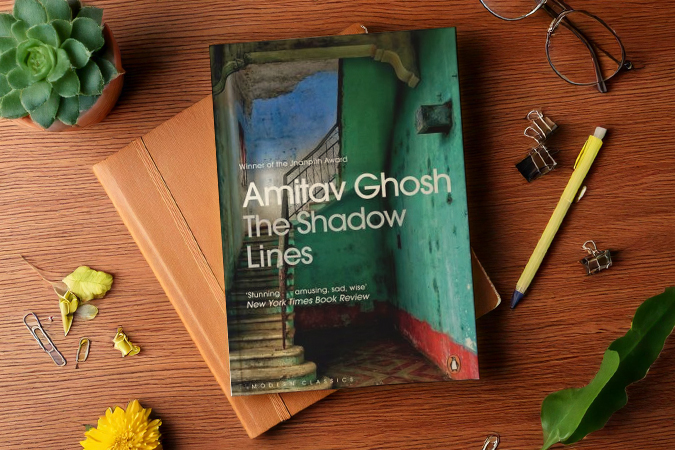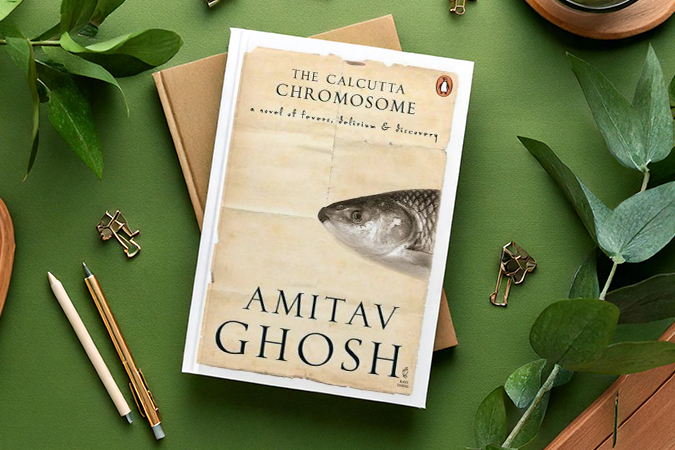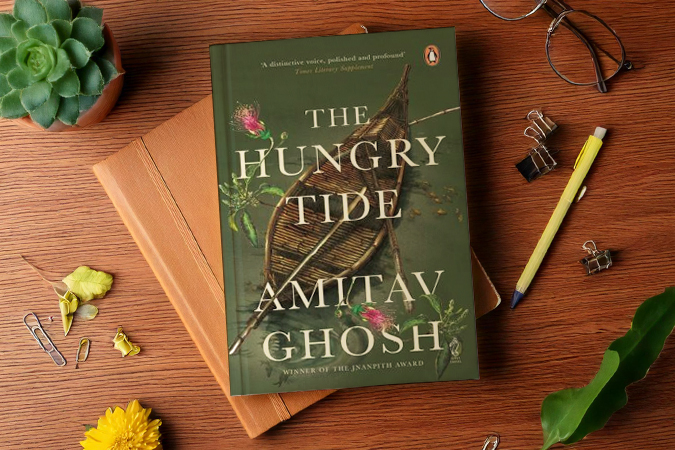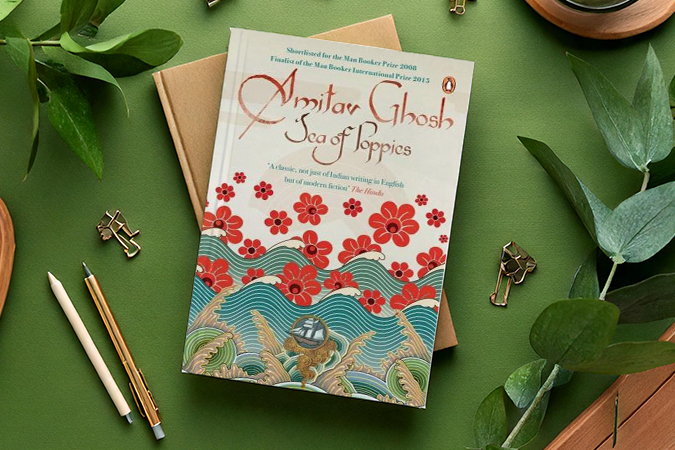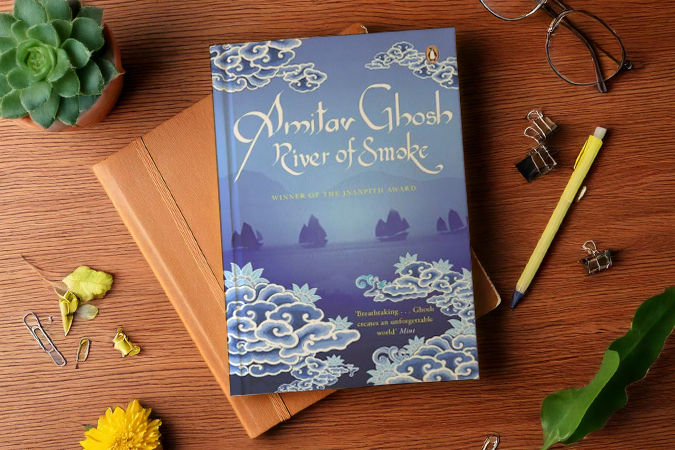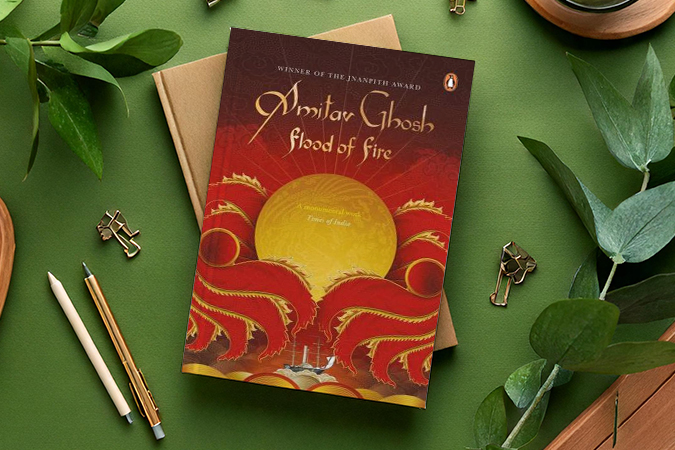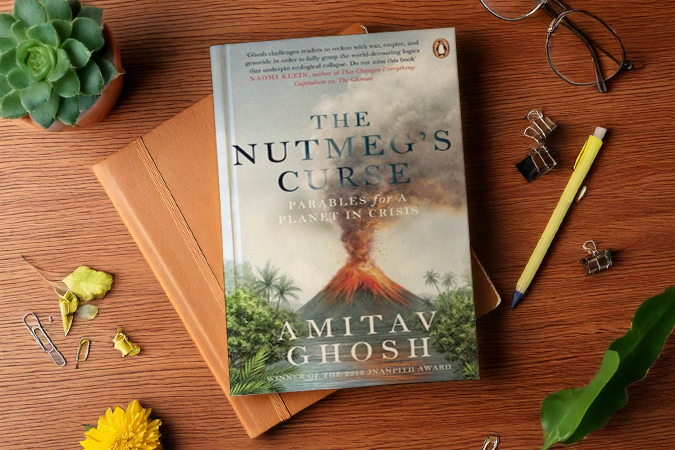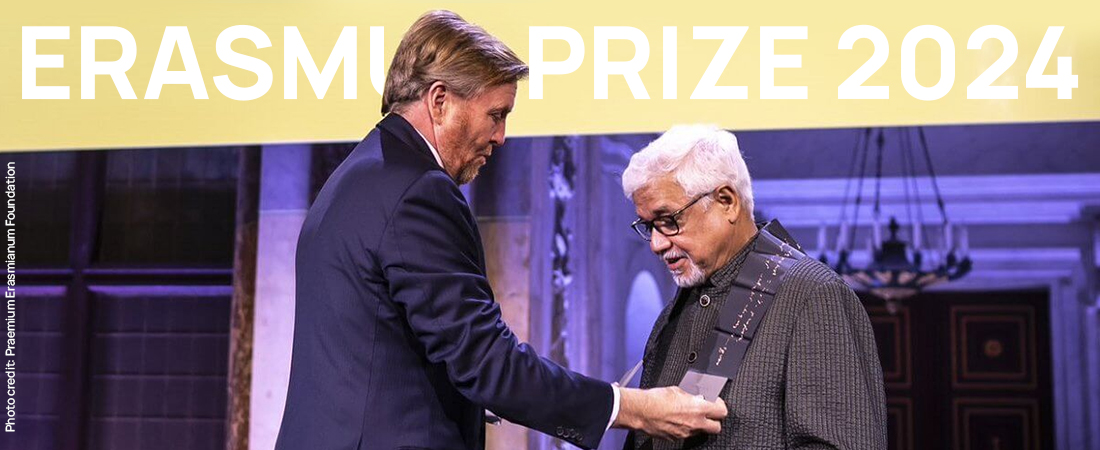
As an act of recognition of his profound contributions to literature and the climate change discourse, Amitav Ghosh was recently awarded the prestigious Erasmus Prize 2024. This accolade places him among a distinguished group of laureates celebrated for their exceptional contributions to arts, culture, and society. Known for weaving stories that merge history, environmental consciousness, and human resilience, Ghosh’s works are as impactful as they are masterful.
What is the Erasmus Prize? What are some significant and well-known works of Amitav Ghosh? Why is his voice more relevant than ever in today’s world? Read on to find out the answers to these questions.
Amitav Ghosh, born in Calcutta in 1956, is an author whose works transcend boundaries of genre and geography. Educated at the University of Delhi and the University of Oxford, Ghosh’s literary career spans decades, earning him a reputation as one of India’s most celebrated writers.
From his debut novel The Circle of Reason (1986) to his latest non-fiction work Smoke and Ashes (2023), Ghosh has consistently challenged conventional storytelling by addressing themes of migration, colonialism, and the environment. His novels, essays, and speeches reflect a deep commitment to exploring humanity’s place in an interconnected and increasingly fragile world.
One of Ghosh’s most notable achievements was being shortlisted for the Man Booker Prize in 2008 for Sea of Poppies, the first book in his Ibis Trilogy. Today, he stands as a literary giant whose works inspire critical thought and global conversations.
The Erasmus Prize is one of Europe’s most prestigious cultural honors, awarded annually by the Praemium Erasmianum Foundation in the Netherlands. Named after the 16th-century Dutch humanist Erasmus of Rotterdam, the prize celebrates individuals or institutions whose work has made a significant impact on culture, society, or social sciences.
Amitav Ghosh became the first Indian writer to receive this honor, recognised for his ability to craft compelling narratives on climate change. His acceptance speech underscored the urgency of addressing ecological crises, stating:
“High modernity taught us that the Earth was inert and existed primarily to be exploited by human beings: in this time of monstrous anomalies, we are slowly beginning to understand that in order to ensure a future for humanity we must learn to recognize that we have never been alone on this planet, that the Earth itself is watching, and judging, us.”
This award not only celebrates Ghosh’s literary achievements but also amplifies his role as a climate change storyteller—a voice the world desperately needs.
If you’re new to Amitav Ghosh’s works or looking to explore his stories, here’s a curated list of must-read books:
This intricate novel explores the blurred boundaries of time, place, and identity through the narrator’s memories of his family across Calcutta, Dhaka, and London. The story spanning generations and events including riots and political upheaval, showcases how personal lives intertwine with historical forces. Through the narrative, Amitav Ghosh examines themes of nationalism, memory, and belonging, challenging the reader’s perceptions of borders and identity.
A genre-defying novel blending science fiction, mystery, and historical fiction, The Calcutta Chromosome follows Antar, a data analyst in New York, who stumbles upon a strange ID card tied to a forgotten malaria researcher in 19th-century Calcutta. The narrative alternates between timelines, uncovering a secretive group with mysterious powers and motives. With its intricate plot and speculative themes, the novel questions the nature of knowledge, science, and human consciousness.
Set in the tidal backwaters of the Sundarbans, The Hungry Tide follows Piya, a marine biologist studying river dolphins, and Kanai, a translator uncovering family secrets. Their paths cross in this treacherous yet mesmerising region, where man and nature are locked in a fragile balance. As Piya navigates the waters and Kanai discovers stories of survival, love, and loss, the story also weaves themes of ecological preservation and human resilience.
Set against the backdrop of the opium trade in 19th-century India, Sea of Poppies follows a diverse group of characters brought together aboard the Ibis, a ship bound for Mauritius. From an impoverished widow to a former American sailor, each passenger’s story is deeply entwined with colonial exploitation and personal transformation. This first novel in the Ibis Trilogy weaves a gripping tale of survival, resilience, and the far-reaching impact of empire.
The second book in the Ibis Trilogy, River of Smoke continues the saga of the opium trade, focusing on the bustling port city of Canton during the 1830s. The novel follows three interconnected stories: a Parsi opium merchant caught in the trade’s moral complexities, a painter documenting the city’s vibrant life, and a botanist in search of a mythical flower. Ghosh weaves a richly detailed portrayal of trade, culture, and conflict.
The final installment of the Ibis Trilogy, Flood of Fire brings the narrative to a dramatic close as the Opium Wars escalate. The lives of a soldier in the East India Company, a Bengali landowner, and a former convict intersect amidst war and rebellion. Ghosh masterfully captures the chaos and transformations of 19th-century Asia, offering a sweeping tale of greed, power, and the human cost of empire.
A rare book dealer named Deen embarks on a journey from Kolkata to Venice, unraveling the mysteries of a Bengali folk legend about a merchant cursed by the goddess of snakes. His travels lead him to unexpected encounters with the effects of climate change, including ecological destruction and human migration. Through a blend of myth, history, and urgent contemporary concerns, Ghosh crafts a thought-provoking tale about humanity’s interconnectedness and the challenges we face.
Jungle Nama is a graphic lyrical adaptation of the Sundarbans legend of Bon Bibi, the guardian spirit of the forest. Written in verse, the story tells of Dukhey, a young boy who ventures into the forest and confronts greed, danger, and ecological harmony. Illustrated by Pakistani-American artist Salman Toor, the book combines Ghosh’s storytelling prowess with a message about respecting nature’s balance. Its rhythmic narrative and vivid imagery make it a captivating read for readers of all ages.
This powerful non-fiction work examines the ecological and societal consequences of colonialism, using the story of the nutmeg’s role in the Spice Wars as a starting point. Ghosh traces how Western imperialism and extractive capitalism reshaped ecosystems and cultures, drawing parallels to today’s climate crises. With a blend of history, philosophy, and environmental critique, he exposes the hidden costs of globalization and invites readers to rethink humanity’s role in creating a more sustainable future.
In this compelling non-fiction work, Ghosh revisits the history of the opium trade and its far-reaching impact on the modern world. Drawing from his research for the Ibis Trilogy, Ghosh unpacks the colonial exploitation underpinning the trade, its role in shaping global capitalism, and its legacy of violence and addiction. Blending personal insights with historical analysis, Smoke and Ashes is part travelogue, part memoir and also a study of one of history’s darkest industries.
Varsha Gupta, a three-year-old, claims memories of a previous life by a river in the Sundarbans, unsettling her strictly vegetarian family and their rational world. Investigated by psychiatrist Dr Shoma Bose as a “case of the reincarnation type,” Varsha’s story reverberates decades later when environmental activists revisit the case. Moving between late-1960s Calcutta and contemporary Brooklyn, the novel blends magic realism with ecological urgency, questioning technocratic solutions and arguing for the power of stories, ancestral memory, and the “ghost-eyed” to confront planetary crisis.
Amitav Ghosh’s storytelling extends beyond fiction. His non-fiction works like The Great Derangement (2016) highlight humanity’s failure to reckon with the climate crisis. His narratives are not just literary feats—they are calls to action.
In a world grappling with environmental degradation and climate-induced migration, Ghosh’s ability to connect historical contexts with present realities makes his voice indispensable.



